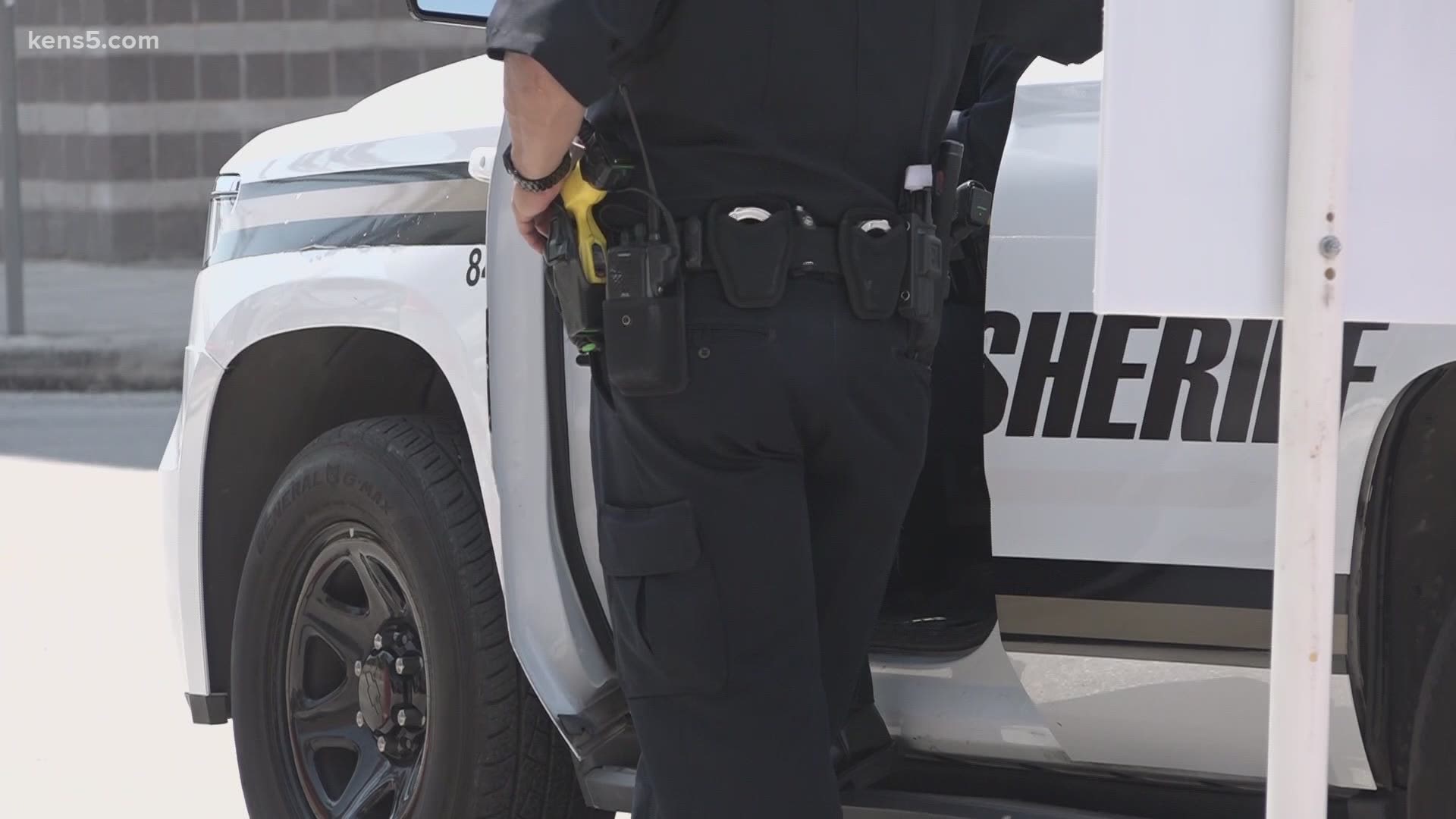SAN ANTONIO — Concerns are being raised over the long hours worked by deputies at the Bexar County Jail. Already hamstrung by staffing shortages and now quarantine protocol, deputies in some cases are forced to work three 16-hour shifts on a weekly basis.
Jeremy Payne, the president of the Deputy Sheriff’s Association of Bexar County, said the fatigue caused by the extra work is not only negatively impacting deputies, but those they encounter on a daily basis.
"Our officers are working anywhere from 58 to 64 hours a week right now in security positions where they need to be alert,” Payne said.
On Tuesday, the sheriff's office announced the arrest of deputy Jean Camacho-Morales amid allegations he “stood by and did nothing” as other inmates severely beat a fellow prisoner. BCSO confirmed Camacho-Morales had worked back-to-back 16-hour shifts leading up to the incident.
One of the overtime shifts was scheduled, mandatory overtime while the other 16-hour shift was prompted by staffing shortages.
Asked whether he thought fatigue played a role in Camacho-Morales’s judgement the day of the assault, Payne responded, “I think fatigue plays a role in all of our decisions.”
“It's affecting marriages, it's affecting families, it's affecting children—it's a bigger picture than just what happens within the jail or what happens in the streets,” Payne said.
An abstract for a 2015 study of two Phoenix Police Department precincts found that officers working 13-hour-and-20-minute shifts had more complaints filed against them for professional standards and experienced significant decreases in cognitive processing, among other issues.
"This study indicates that there are no apparent advantages but considerable liabilities associated with 13:20-hr shifts for police officers,” the abstract states.
A research article published in 2010, meanwhile, found that excessive work “heightens the risk of officer injury, compromised public safety, and the possibility of significant civil liability damage awards for avoidable accidents.”
Other area law enforcement agencies – including the Leon Valley, Balcones Heights and San Antonio police departments – cap the number of hours an officer may work. In Balcones Heights, chief John Jahanara confirmed dispatchers and officers are not permitted to work more than 12 hours in a shift. The Bexar County Sheriff’s Office on Tuesday confirmed it does not have a policy setting a maximum number of hours a deputy may work, but said “detention shift commanders are aware of what deputies work overtime through overtime tracking measures,” adding that BCSO officials tracks the data as well.
“These men and women, they're only getting like four hours of sleep, five hours of sleep,” Payne said. "And then they're asked to do another 16-hour shift.”
Payne said the deputies often work the shifts without breaks due to the fact that no one is available to relieve deputies, and vacation time is seldom approved.
In an effort to boost recruitment, Payne said the union has worked to have various incentives included in their agreement with Bexar County, including tuition reimbursement. But, he said, sheriff’s deputies are among the lowest-paid of the major counties in Texas.
Payne noted that BCSO has stepped up its recruiting efforts, but said the union welcomes policies that protect deputies from job-related fatigue. However, he said a cap on hours may not be the solution, noting that it could potentially subject deputies to more frequent extended workdays. He suggested that regulating how many officers should be utilized per capita may be the way to address staffing shortages and overtime issues.

